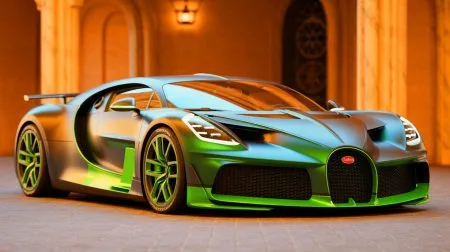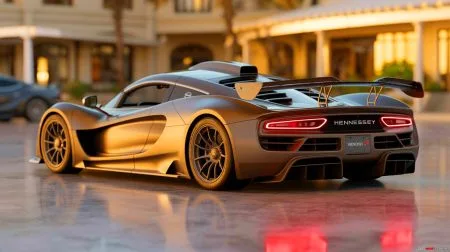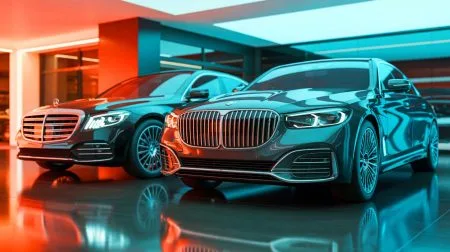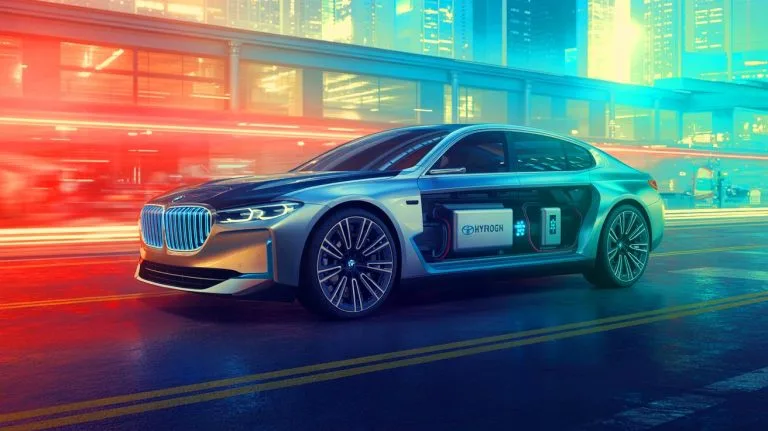| IN A NUTSHELL |
|
BMW is making significant strides in the development of hydrogen fuel cell technology with its upcoming plans for mass production at Plant Steyr. The auto giant is currently testing prototypes of its third-generation hydrogen fuel cell (HFC) system, with full-scale production anticipated by 2028. This move marks a pivotal step in BMW’s commitment to sustainable energy solutions, leveraging its long-standing partnership with Toyota to bring these innovations to life. By 2028, BMW aims to integrate these systems into their vehicles, further advancing the potential for hydrogen as a mainstream automotive fuel.
BMW and Toyota: A Strategic Partnership
The collaboration between BMW and Toyota is not new, but the current project takes their partnership to new heights. While Toyota provided the fuel cells for the first-generation system, the subsequent development has been more collaborative. The second-generation system was a joint effort, and now, BMW is taking the lead on the third generation, with Toyota continuing to supply the essential fuel cells.
This partnership allows both companies to benefit from shared expertise and resources, ultimately reducing the costs associated with development and procurement. By working together, BMW and Toyota can tailor the HFC systems to suit their specific vehicle needs while advancing hydrogen fuel cell technology for both commercial and passenger vehicles. The partnership not only strengthens their market positions but also accelerates the adoption of cleaner energy solutions in the automotive industry.
Innovations in Hydrogen Fuel Cell Technology
The third-generation hydrogen fuel cell system developed by BMW is 25% smaller than its predecessor, a significant achievement in design and engineering. This compact size allows the system to fit into the space traditionally occupied by a combustion engine, facilitating easier integration into both existing and new vehicle architectures.
Moreover, BMW has introduced an improved operating strategy and newly developed drive technology, enhancing the system’s overall efficiency. The prototypes currently being tested incorporate a compact layout that includes hydrogen and air delivery, cooling systems, electrical components, and water extraction. These components work together seamlessly, forming a comprehensive unit that ensures optimal performance and safety.
Testing and Development at BMW Facilities
BMW is conducting extensive testing on its prototypes to assess noise, vibration, and harshness (NVH) levels alongside output comparisons with other propulsion options. These tests are crucial for validating the performance and safety of the new HFC system, guiding the necessary adjustments before full-scale production.
The prototypes are being produced at BMW’s Munich plant, where final proof of concept and safety evaluations are underway. This stage is critical in informing the tooling and production requirements needed at the Steyr facility, where series production will eventually take place. BMW’s Landshut facility, responsible for building the iX5 Hydrogen pilot fleet, continues to play a vital role by manufacturing housings and pressure plates for the next generation of hydrogen fuel cell vehicles.
A Commitment to Sustainable Energy
BMW’s investment in hydrogen fuel cell technology underscores its commitment to sustainability and innovation. By exploring alternative energy sources, BMW is positioning itself as a leader in the transition to cleaner transportation solutions. Hydrogen fuel cells offer the potential for zero-emission driving, with water being the only byproduct.
As the world increasingly focuses on reducing carbon emissions and combating climate change, BMW’s advancements in hydrogen technology represent a significant step towards a more sustainable future. The company’s efforts could pave the way for broader acceptance and implementation of hydrogen as a viable energy source in the automotive industry.
As BMW moves closer to full-scale production of its hydrogen fuel cell systems, the automotive industry watches closely. Will hydrogen technology become a mainstream solution for sustainable transportation, or will it face significant challenges in widespread adoption? The future of hydrogen fuel cells in the automotive sector remains an open question, inviting further exploration and innovation.
Did you like it? 4.7/5 (30)







Wow, BMW is going hydrogen! How do these fuel cells compare to electric batteries in terms of efficiency? 🤔
Wow, this is a game-changer for hydrogen tech! 🚗💨
Is hydrogen really the future, or just another passing trend? 🤔
Finally, someone is giving Tesla a run for their money! Go BMW! 🚗💨
How does this system compare to Tesla’s electric engines?
Thank you, BMW, for pushing the boundaries of sustainable tech! 🌿
Is this really the future of cars or just another fad? I guess only time will tell…
Why 2028? Seems like a long wait! 😅
25% smaller is impressive, but how much power do they actually produce compared to traditional engines?
Are there any safety concerns with hydrogen fuel cells?
Can’t wait to see a hydrogen BMW on the road! 🚙
Thank you for such an informative article! Learned a lot about hydrogen fuel cells. 😊
Will this make BMW cars more expensive?
What about the infrastructure? Is it ready for hydrogen vehicles?
Hope this doesn’t mean BMWs will get more expensive. 😬
25% smaller? That’s pretty impressive engineering! 🛠️